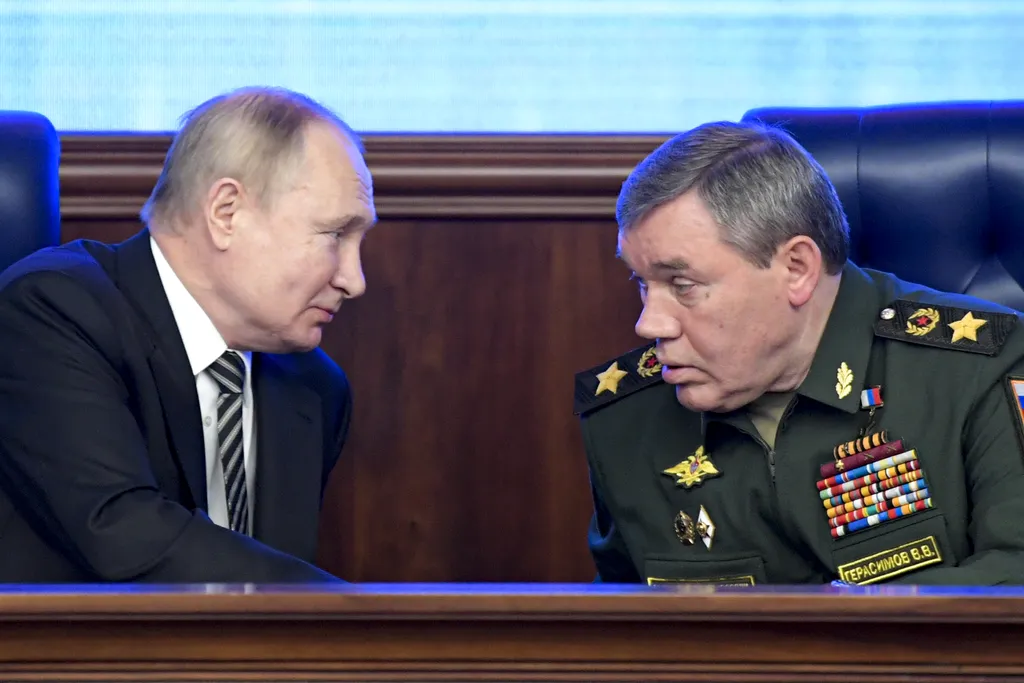Secretary of the Army Dan Driscoll arrived in Kyiv on Wednesday, leading a delegation of senior Pentagon officials on a critical fact-finding mission. The visit, which includes Army Chief of Staff Gen. Randy George, commander of U.S. Army Europe and Africa Gen. Chris Donahue, and Sergeant Major of the Army Michael Weimer, aims to discuss military technology and explore pathways to restart peace talks, according to multiple U.S. officials.
The White House selected Driscoll to head the delegation, leveraging his expertise to provide a military perspective that could be more effective in engaging with Russian counterparts. “Secretary Driscoll and team arrived this morning in Kyiv on behalf of the administration on a fact-finding mission to meet with Ukrainian officials and discuss efforts to end the war,” Army spokesman Colonel David Butler stated on Wednesday.
During the visit, Driscoll will examine Ukrainian military technology and defence innovations, with a particular focus on drones and AI. In a recent interview on “Face the Nation with Margaret Brennan,” Driscoll highlighted Ukraine’s use of drones and AI as an “incredible treasure trove of information for future warfare.” He cited Operation Spider’s Web, a June attack that utilised drones costing a few hundred thousand dollars to destroy Russian equipment valued at approximately $10 billion.
Driscoll’s itinerary includes meetings with top Ukrainian leaders, culminating in a discussion with President Volodymyr Zelenskyy to revive stalled negotiations. A Ukrainian official told CBS News that the visit’s focus will be on the current military situation and potential ceasefire plans. “Secretary Driscoll’s visit is extremely important, as we are stepping into a decisive phase now,” the official said, adding that both Zelenskyy and Trump have agreed to halt the conflict along existing engagement lines.
The official also noted that Ukraine has engaged with over 30 supporting countries and the “Coalition of the Willing” on security guarantees, although Ukraine has not agreed to permanently cede territory to Russia. Driscoll emphasised the importance of executing President Trump’s agenda for peace, stating on “Face the Nation,” “I have not been to the White House where it has not come up that we just want peace so that the American industrial base can thrive everywhere, and we have to focus on that part of the world unnecessarily right now.”
Negotiations to end the war have stalled since the spring, despite Trump’s efforts to revive them during summits with Russian President Vladimir Putin and meetings with Zelenskyy. The U.S. has resumed intelligence sharing with Ukraine, enabling attacks on Russia using U.K.-provided long-range equipment and drones. A defence official confirmed that Driscoll plans to meet with Russian officials in the future, though no meetings are currently scheduled.
Russia has expressed openness to talks, with Putin inviting Trump to Moscow. In an interview with Axios, Putin adviser Kirill Dmitriev revealed a 28-point peace plan developed during a meeting with Trump envoy Steve Witkoff in Miami. Despite U.S. sanctions on Dmitriev, the Treasury Department granted a waiver for his travel to the U.S. to continue discussions on ending the war.
Treasury Secretary Scott Bessent dismissed Dmitriev as a “Russian propagandist” when asked about the meetings on “Face the Nation.” A defence official confirmed Driscoll’s intention to open discussions on a peace plan but could not comment on the 28-point proposal. The Russian Embassy declined to comment on the plan, and Dmitriev’s spokesperson did not respond in time for publication.
On Tuesday, Zelenskyy announced plans to meet with Turkish President Recep Tayyip Erdogan to discuss “a just peace for Ukraine.” A State Department official denied reports that Witkoff would travel to Türkiye for diplomatic meetings, and Witkoff had not responded to requests for comment at the time of publication.
This mission underscores the critical role of military expertise in shaping diplomatic strategies and highlights the potential for technological innovation to influence the future of warfare and peace negotiations.

